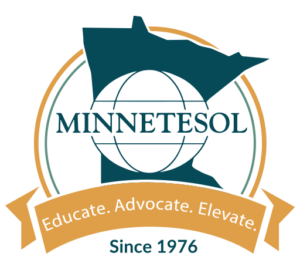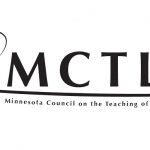What is WIDA?
WIDA supports academic language development and academic achievement for linguistically diverse students through high quality standards, assessments, research, and professional development for educators.
The WIDA Consortium is a non-profit cooperative group whose purpose is to develop standards and assessments that meet and exceed the goals of No Child Left Behind (NCLB) and promote educational equity for English language learners (ELLs). Through standards, assessments, research, and professional development, WIDA provides meaningful tools and information to educators working with ELLs that are anchored in research-based practices for serving these diverse learners.
Minnesota TESOL Session Descriptions
Friday, November 4:
Advanced WIDA training for those who have already had some training in the WIDA standards
- All day workshop for 130 maximum participants.
- Description: Participants will explore the purpose and process of transforming the model performance indicators (MPIs) and apply the ELD Standards to their specific educational settings. Learn about how you can use the ELD Standards to make your planning, instruction, and assessment easier and more targeted.
- 8:00- 8:30: registration
- 8:30-3:30: training (1-hour lunch break, 12:00-1:00)
- Description: Participants will explore the purpose and process of transforming the model performance indicators (MPIs) and apply the ELD Standards to their specific educational settings. Learn about how you can use the ELD Standards to make your planning, instruction, and assessment easier and more targeted.
Saturday, November 5:
- Table provided for WIDA Consortium to display products and services throughout the day
- 3 sessions of 50 minutes each
- Amplified WIDA Standards, overview of what is coming out this fall (2 sessions)
- Description: Join WIDA representatives to hear about what is new in the amplified version of the English Language Development Standards. Participants will learn about more explicit ways of showing the integration of the WIDA ELD standards to state and national content standards, including the Common Core.
- CAN DO Descriptors Session (1 session)
- Description: This session will introduce the CAN DO Descriptors and discuss how the CAN DO Descriptors can guide and support school-wide collaboration. Participants will explore the use of CAN DO Descriptors as a tool to assist in differentiating language instruction.
- Amplified WIDA Standards, overview of what is coming out this fall (2 sessions)



